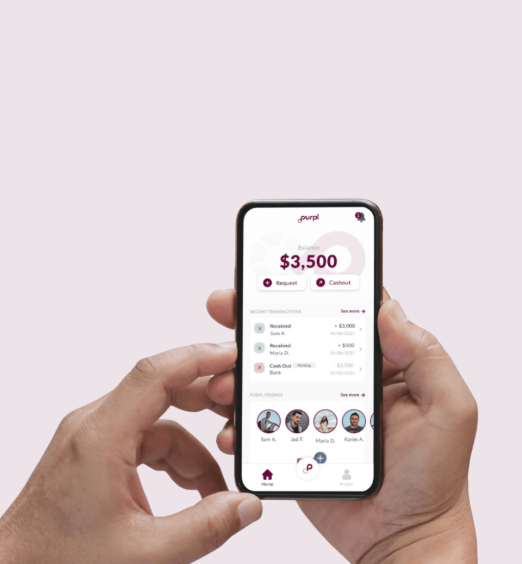Boosting Financial Inclusion with Mobile Wallets

As the world accelerates towards a cashless economy, mobile wallets have become an essential tool for facilitating secure, convenient, and efficient transactions. The shift from traditional payment methods to digital alternatives is gaining momentum, and this transformation is especially beneficial in promoting financial inclusion. In this blog, we explore how mobile wallets are empowering consumers and driving financial inclusion for the underbanked.
How Do Digital Wallets Work?
A digital wallet allows individuals to store and transfer money without the need for a traditional bank account. Users can download mobile apps or access internet banking platforms to hold virtual money, which can then be used for purchasing goods or services. Moreover, mobile wallets enable individuals to receive payments for products or services, eliminating the need for cash. Whether via smartphones, smartwatches, or other devices, these wallets provide easy, secure access to funds.
While the terms “mobile wallet” and “digital wallet” are often used interchangeably, there is a distinction. A mobile wallet, tied to a smartphone or wearable device, facilitates payments through those devices. A digital wallet, on the other hand, can be used for online transactions without being tied to a specific device, offering more flexibility.
Why Are Digital Wallets Gaining Popularity?
Mobile wallets are gaining traction worldwide, and several factors contribute to their rise. These wallets leverage technologies like Near Field Communications (NFC), Magnetic Secure Transmissions (MST), and QR codes, making payments both online and at physical stores seamless and convenient.
One of the key advantages of digital wallets is enhanced security. They utilize tokenization and biometric authentication (e.g., fingerprint or facial recognition), ensuring that sensitive data remains protected. This level of security has driven consumer trust, making digital wallets an increasingly popular choice for both everyday transactions and online purchases.
Signing up for a mobile wallet is also simple, which promotes financial inclusion. With an easy online onboarding process and eKYC (electronic Know Your Customer) verification, users can link their bank accounts or credit cards, or even fund their wallets via physical deposit machines, making digital wallets accessible to a wide range of consumers, including those without traditional bank accounts.
The Role of Mobile Wallets in Financial Inclusion
Digital wallets are revolutionizing access to financial services, especially in regions where traditional banking infrastructure is limited. With mobile wallets, individuals can easily manage their finances, make payments, and send money across borders without relying on banks or facing the high costs typically associated with traditional financial services.
In East Africa, for example, mobile wallets have become a vital tool for financial inclusion, with a significant percentage of women in the region receiving payments through these platforms. This highlights the growing awareness of the benefits of digital wallets, which are helping bridge the financial gap for those who were previously excluded from the traditional banking system.
Increased Acceptance and Customer Adoption
As more consumers adopt mobile wallets, merchants are also recognizing the benefits of accepting these digital payment methods. This has led to widespread acceptance, even among small local businesses, further driving the adoption of mobile wallets.
In fact, it is estimated that there will be 4.8 billion mobile wallet users by 2025, reflecting the rapid expansion of mobile payment systems. The ability to make seamless payments is helping reduce cart abandonment in eCommerce, with mobile wallets offering a simplified checkout process that appeals to both customers and businesses alike.
Mobile Wallets and Cross-Border Payments
Mobile wallets have become especially important for migrant workers, who often struggle with traditional banking systems due to the complexity and high fees associated with cross-border transfers. Mobile wallets make it easy for them to send money home without facing high transaction fees.
Banks and remittance companies typically charge steep fees for international transfers, but mobile wallets can significantly lower these costs, making the process faster and more accessible. This convenience and affordability are critical for workers who send money to their families in low-income countries.
Security and Flexibility
One of the main reasons consumers are opting for mobile wallets is the enhanced security they provide. With features like biometric authentication and the ability to lock the wallet remotely if the device is lost or stolen, mobile wallets offer peace of mind that traditional payment methods cannot match. The flexibility to store and access multiple credit and debit cards in one place is another benefit, making them a convenient alternative to carrying physical cards.
The Growing Impact of Mobile Wallets on Financial Inclusion
As digital wallets continue to gain ground, they are playing a pivotal role in improving financial inclusion globally. The World Bank estimates that 1.7 billion people still lack access to banking services, often due to geographical or financial barriers. Mobile wallets provide an easy and accessible entry point for these individuals, allowing them to engage in financial transactions without the need for a bank account.
Moreover, mobile wallets are a lifeline for the underbanked, who often rely on expensive and predatory financial products like payday loans. With mobile wallets, users can avoid high-interest rates and manage their finances more effectively, breaking the cycle of debt and improving their financial wellbeing.
Conclusion
Mobile wallets have proven to be an effective tool in promoting financial inclusion, offering a fast, secure, and convenient way for people to manage their finances. As more individuals and businesses adopt digital wallets, the financial ecosystem becomes more inclusive, providing opportunities for the previously underserved populations.
The continued growth of mobile wallet usage, supported by governments and fintech companies, will help drive financial inclusion worldwide. As the world moves further towards a cashless economy, mobile wallets will play a crucial role in shaping the future of global finance.


 English
English 












































































































































































































































































































































































